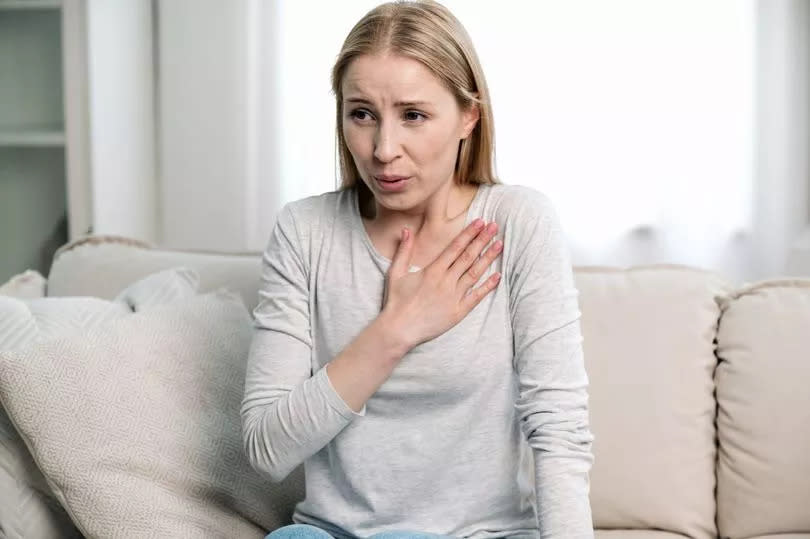Doctor warns of little-known virus everyone catches but can leave you 'gasping for breath'

An NHS doctor has explained how almost everyone will catch a little-known virus ‘they’ve never heard of’ which can leave them ‘gasping for breath’. Writing in The Times, TV doctor Mark Porter who has appeared on BBC Breakfast and This Morning said that everyone over the age of 75 and pregnant will be offered a new vaccine in just two month’s time.
The respiratory syncytial virus, known as RSV is dangerous to the very young, the old and those with heart and lung conditions or weakened immune systems, the doctor explained. From September pregnant women and the over-75s will be offered a one-off dose of a vaccine.
RSV comes from the same family of viruses as mumps and measles and is highly contagious. NHS figures show that nearly every child (90 per cent) will catch it at least once during their first two years, and re-infection throughout life is common. I
Dr Porter warned: “In most cases RSV causes little more than a mild cough or cold, but for some — adults and children — it can be life-threatening. More than 30,000 babies in the UK are hospitalised with it every year, 20-30 of whom die. The impact in older people isn’t so well documented but it is a common cause of pneumonia in adults with some estimates suggesting that it contributes to the deaths of at least 5,000 adults over 45 in a typical year, most of whom are over 75.
“RSV is spread through infected droplets produced by coughing, sneezing and breathing, and it can survive on surfaces for at least four hours. Once you have been infected it takes three to five days for symptoms, like a runny nose, cough and sometimes a fever, to develop fully, with recovery taking up to two weeks or more.”
In babies it often leads to inflammation of the lungs, causing severe cough, wheezing and shortness of breath (bronchiolitis) and Dr Porter said that during the peak winter months, paediatric units across the country are full of cases. Parents and the NHS had something of a respite during the first part of the pandemic because social distancing measures dramatically reduced spread.
He added: “Sadly, the virus has bounced back with a vengeance. In older people RSV has a similar impact to Covid and flu. American research suggests that 5-10 per cent of residents in nursing homes will catch it each year — typically during the peak season from October to March — as many as 20 per cent of whom will go on to develop pneumonia.”
There is no specific treatment, he said with antivirals potentially used in serious cases, but normally just oxygen can be given until natural recovery. He said the vaccine offers 80 per cent protection in the first two years and giving it to pregnant women will immunise the baby so it is born with protection - halving the chance of being hospitalised with a chest infection during the first six months of life. He added: ”No matter how many cases you see, it’s always distressing to see a baby or toddler struggling for breath.”

 Yahoo News
Yahoo News 
